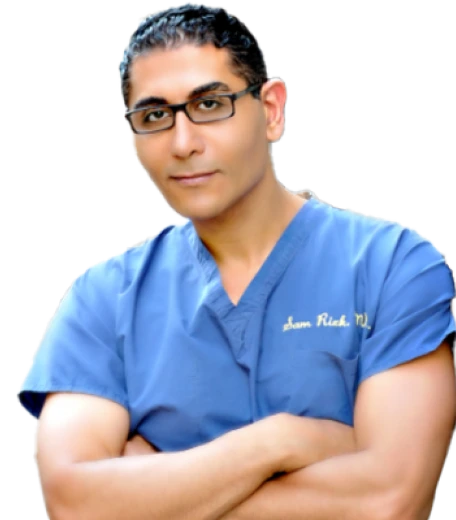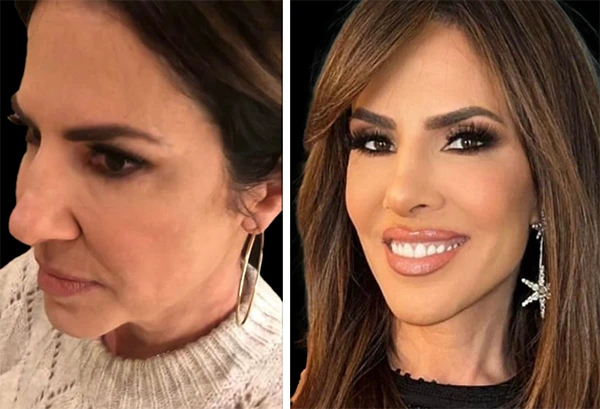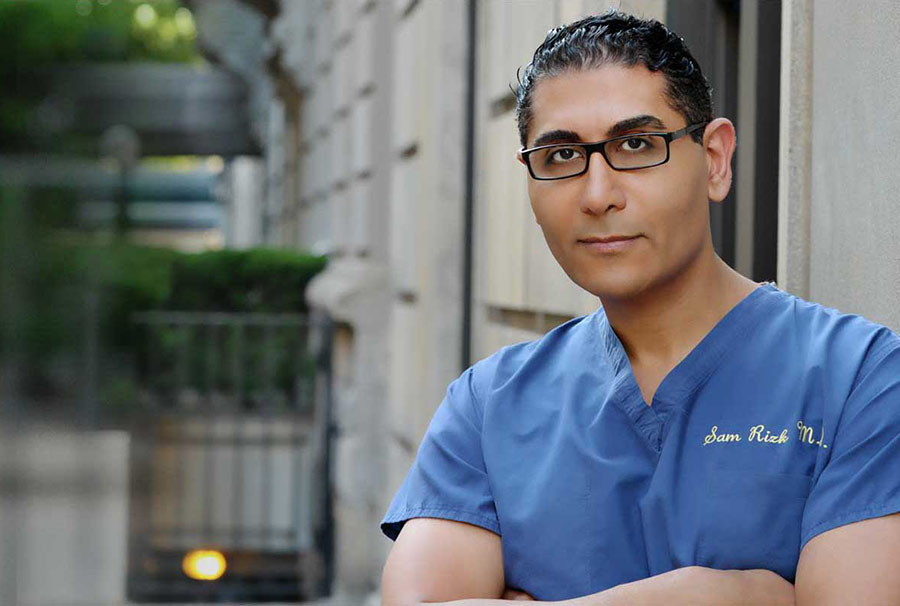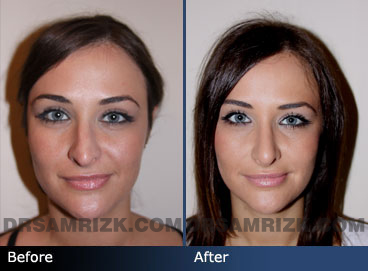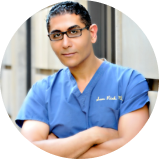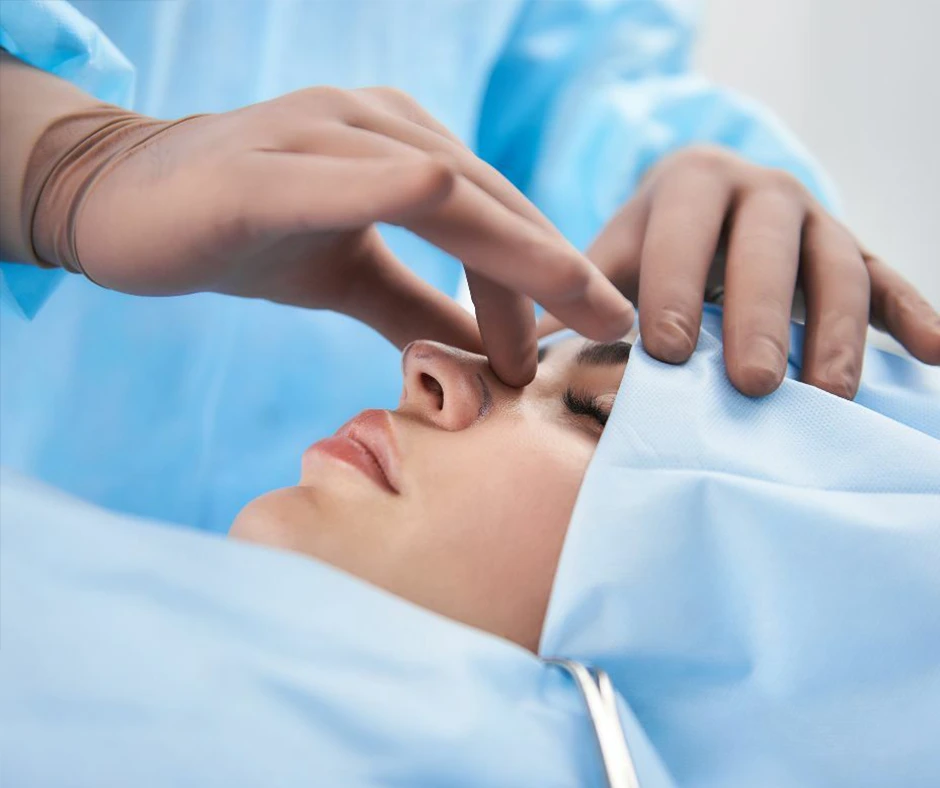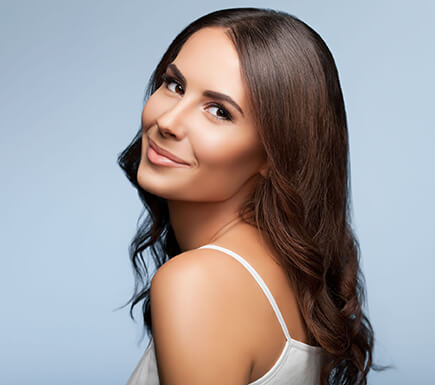Most people are good candidates for rhinoplasty surgery. However, there are situations in which the risks do outweigh the benefits. There are a number of factors that can render a person ineligible for nose surgery. Below I will address these factors and try to answer some of the most common questions pertaining to rhinoplasty eligibility.
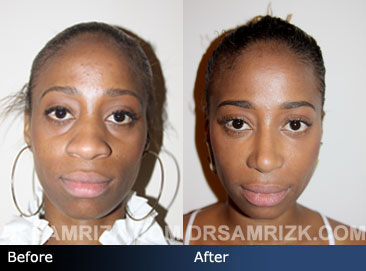
When Do the Risks Outweigh the Benefits?
So long as you are in good health, have realistic expectations and have a legitimate concern about the appearance of your nose, you are probably eligible to have rhinoplasty. However, I may advise you not to undergo the procedure if:
- You have skin or nasal cartilage that is lacking in structural integrity.
- You have unrealistic expectations – rhinoplasty will not transform your life.
- Someone else is the driving force behind your desire to have nose surgery.
- You are under the age of 14 (girls) or 15 (boys). (Prospective patients must wait until their facial structures have finished growing before having rhinoplasty. The shoe size must also remain the same for a year).
- You seek perfection.
- You suffer from depression or another psychological issue such as body dysmorphic disorder.
- You are looking for something to transform you into another person.
- You are in the midst of a life crisis (death of a loved one, end of a relationship, etc.).
- You have been turned away by another facial plastic surgeon.
The following are additional factors that may exclude you from consideration:
- High blood pressure
- Heavy drinking/smoking
- Bleeding disorders
- Heart disease
- Lung disease
- Diabetes
- Obesity
- Arthritis
- High cholesterol
- Severe allergies
How Does Dr. Rizk Determine When to Proceed with Surgery?
We will discuss all of the issues described above, as well as others, in your initial consultation. This will allow me to assess whether or not it is a good idea for you to have rhinoplasty.
During the initial consultation we will cover your medical history as well as any drug allergies, current medical conditions, pre-existing conditions, previous surgeries and other risk factors. I will also ask you for a list of any medications, vitamins and supplements you are currently taking, and we will discuss alcohol, tobacco and drug use — if you use any of these. The consultation will also give me the opportunity to examine your nasal/facial anatomy. In addition, I will listen to your goals and any concerns and explain the details of rhinoplasty and any other procedures that are being considered. I will use 3D imaging to show you what you might look like after your procedure.
Your first meeting with me will also give you the opportunity to get answers to your most pressing questions.
What if a Patient Really wants the Procedure?
Not everyone who wants to have nose surgery is a good candidate, but this can be a hard pill for some people to swallow. While I am sensitive to the desires of prospective patients, I will be honest in telling you if you are not a good candidate for the procedure.
How Long Should I Wait Before Considering a Revision?
While the majority of people are thrilled with the results of their rhinoplasty procedures, dissatisfaction with results is not uncommon. However, it is important that you be patient and wait for the nose to heal before rushing to have a revision procedure.
You should expect your nose to be swollen in the weeks and months following nose surgery. In fact, in some cases final results are not apparent for up to a year. Be sure to follow all of your surgeon’s postoperative instructions to address swelling.
If after a year you are still unhappy with the outcome of your procedure, you may want to consider having
revision rhinoplasty (aka secondary rhinoplasty) to reshape or resize your nose. Revision rhinoplasty can also address asymmetry, excessive reduction of the nasal bridge (in your first rhinoplasty procedure), any materials that are poorly tolerated, as well as breathing difficulties.
However, it is important to exercise caution when considering revision rhinoplasty. Any number of factors can eliminate you from eligibility for this procedure. The integrity of your skin and nasal structures are extremely important factors. This often depends more on what was done in prior surgeries and on factors specific to your nasal anatomy than on how many previous nose surgeries you had.
Other factors that may affect your eligibility for revision rhinoplasty include how much cartilage was removed, whether you need grafting, the amount of scar tissue and your psychological condition, among others.
Revision rhinoplasty is a highly technical, very challenging procedure, so it is important that you carefully consider the potential drawbacks. It is also extremely important that you choose a board certified facial plastic surgeon to perform you procedure.
Contact my practice to learn more about what makes a person a good or bad candidate for rhinoplasty.

